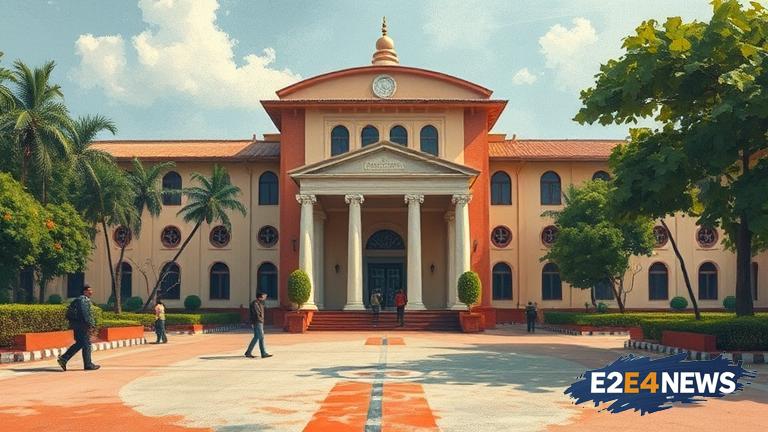The Indian Institute of Technology Guwahati (IIT Guwahati) has recently issued a directive to its PhD students, instructing them to pay the revised fee or leave the institution. This move has sparked controversy and concern among the students, who are already struggling to make ends meet. The revised fee structure, which was introduced earlier this year, has increased the tuition fees for PhD students by a significant amount. Many students have expressed their inability to pay the revised fee, citing financial constraints and the lack of adequate funding from the institution. The students have been given a deadline to pay the revised fee, failing which they will be forced to leave the institution. This has caused a sense of panic and uncertainty among the students, who are worried about their future and the impact this will have on their research work. The PhD students at IIT Guwahati are already facing significant challenges, including limited funding, inadequate infrastructure, and a lack of support from the institution. The revised fee structure has added to their woes, making it difficult for them to continue their research work. The students have been protesting against the revised fee structure, demanding that the institution reconsider its decision and provide adequate funding to support their research work. However, the institution has remained firm on its decision, stating that the revised fee structure is necessary to maintain the quality of education and research at the institution. The controversy has sparked a wider debate about the funding of higher education in India, with many experts arguing that the government needs to increase its funding for institutions like IIT Guwahati to support research and development. The PhD students at IIT Guwahati are not alone in their struggle, as many students across the country are facing similar challenges. The issue has highlighted the need for a more sustainable and equitable funding model for higher education in India, one that takes into account the needs and challenges of students and institutions. The institution has defended its decision, stating that the revised fee structure is necessary to ensure the long-term sustainability of the institution. However, the students have argued that the institution has a responsibility to support its students and provide them with adequate funding to pursue their research work. The controversy has also raised questions about the role of the government in funding higher education, with many experts arguing that the government needs to increase its funding for institutions like IIT Guwahati. The issue has sparked a wider debate about the future of higher education in India, with many experts arguing that the country needs to invest more in education and research to remain competitive in the global economy. The PhD students at IIT Guwahati are hoping that the institution will reconsider its decision and provide them with adequate funding to support their research work. However, the outcome is uncertain, and the students are bracing themselves for the possibility of having to leave the institution. The controversy has highlighted the need for a more nuanced and sustainable approach to funding higher education in India, one that takes into account the needs and challenges of students and institutions. The institution has a responsibility to support its students and provide them with adequate funding to pursue their research work. The government also has a role to play in funding higher education, and it needs to increase its funding for institutions like IIT Guwahati to support research and development. The future of higher education in India depends on the ability of institutions and the government to work together to provide adequate funding and support to students and researchers.
